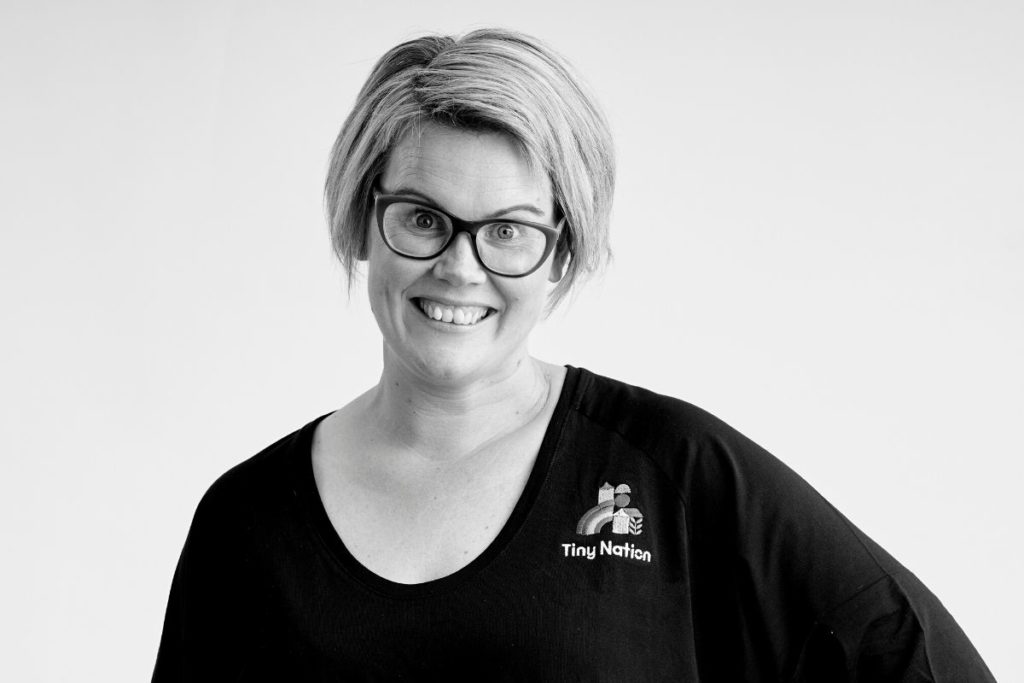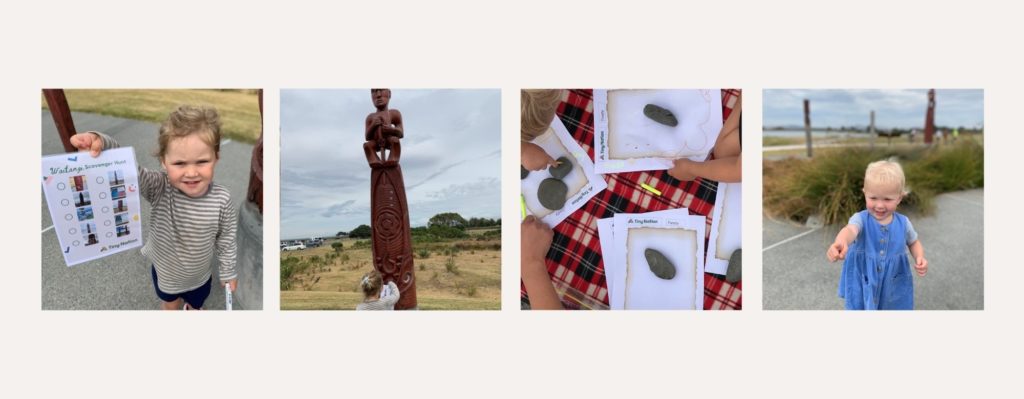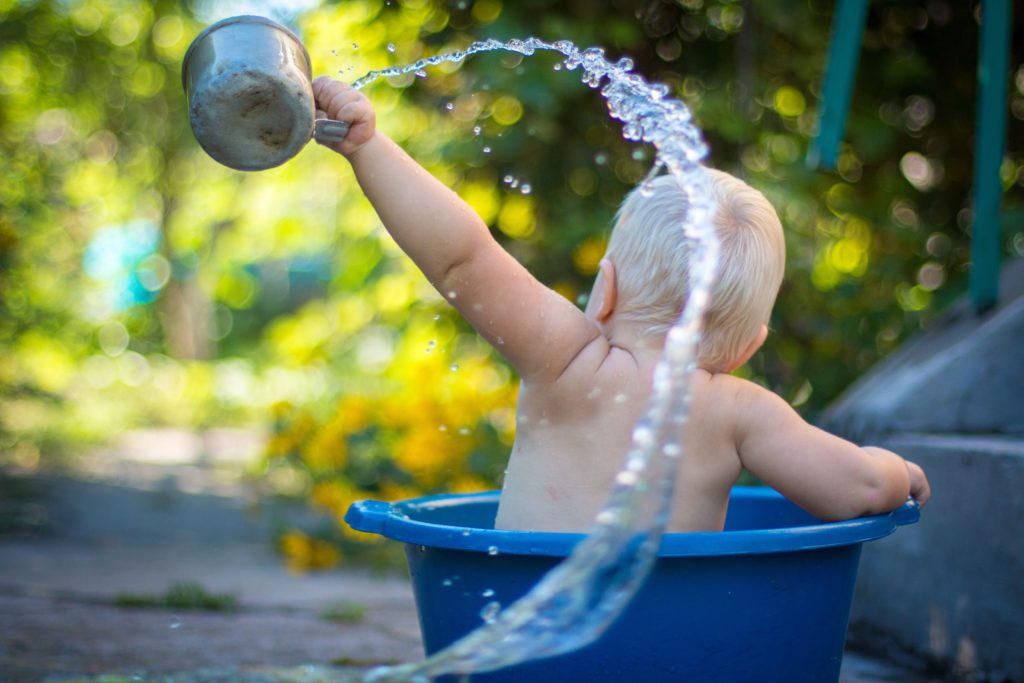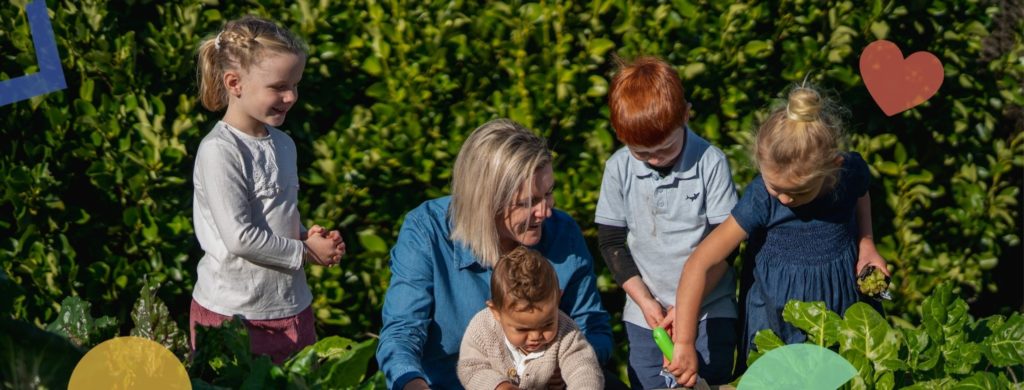Kia ora koutou katoa
As we kick into gear in 2021, we find ourselves once again facing the unknowns of this tricky COVID-19 virus, starting last week off with a move up in alert levels and a change to the return to normality that we’ve all become rather used to!
The good news is that we’ve been here before and we can now navigate these uncertain times in a way that allows our educators, nannies, families and tiny learners to stay safe while also continuing to enjoy all of the benefits of small group-based care. Being able to keep our bubbles tight right now because of how we operate as a service is something that we don’t take for granted. Our tamariki continue to enjoy the familiar routines and nurturing environments that they’ve come to know and love with their one special person (their educator or nanny) crafting care moments and learning opportunities for them at home. In the midst of a global pandemic, the true benefits of being a part of sector that embraces home-based care and learning are obvious.
This is one of the reasons why we are seeing a big surge in enquiry, both from families and educators who are looking for a change and a return to a more traditional and organic form of early childhood education and care. Most of our educators are now full with waiting lists and we are actively recruiting for qualified educators and nannies to join our national team to be a part of a movement that encourages communities to embrace (like we have) the importance of the home environment and one-on-one attachment relationships with educators and nannies. If you are a qualified educator, nanny or teacher in early childhood education keen to work with a like-minded, passionate and professional team, connect with us! We’d love to talk to you more about our vision for the future and how we are working together to create the best possible care and learning environments for our tiny learners.
Ngā mihi, nui
Erin Maloney and the Tiny Nation Team

Tiny Nation’s Waitangi Day Celebrations
As a part of reflecting New Zealand’s bicultural early childhood education curriculum, it was important to us to acknowledge Waitangi Day earlier this month and mark it with our tamariki, educators, nannies and wider communities. We celebrated Waitangi Day at Tiny Nation by hosting Waitangi Day picnics in each of our regions.
We explored papatuanuku with scavenger hunts in special sites around the country, like Waitangi Park in Hawke’s Bay which was an early arrival site for both Māori and pākehā and home of the Star Compass, Ātea a Rangi. Our older children also created their own treaty to help them start to grow an understanding of the three key principles of the Treaty of Waitangi – partnership, participation and protection.
Our Waitangi Day picnics coincided with our February resource focus on te reo Māori language, providing our educators and nannies with kits to encourage and celebrate the use of te reo Māori in our homes. Educators and nannies have also been exploring music and movement with their tamariki, sharing waiata (song) with each other.
These activities reflect Tiny Nation’s priorities for learning tūrangawaewae – fostering a sense of belonging and participation in both community and in home activities.

Food and Nutrition Guidance
Late in January, the Ministry of Education, together with the Ministry of Health, released some new guidance and changes for all early learning services around food and nutrition to minimise food-related choking risks.
We have been working with our educators, nannies and families to un-pack the guidance material and share the new information to help inform choices around food and nutrition.
This has culminated in a new Tiny Nation Food and Nutrition Policy that has been shared with our Tiny Nation community. Ultimately, because parents and caregivers provide lunchbox food for our Tiny Nation tamariki while they are in the care of their educators, the licensing criteria that we work to hasn’t changed dramatically at all. The requirements for food under the new criteria that has been released apply only to food provided and prepared by early learning services, not to food provided by parents and caregivers.
There are, however, a number of new publications created by the Ministry of Health to support families, educators and providers with information that will help inform choices around food and nutrition. Reading this guidance will help you to understand what foods may present more of a choking risk for children under the age of five and may be useful when thinking about lunchbox choices for children (depending on their age and stage). You can find out more about the new food and nutrition guidelines by clicking on the links below:
- Healthy Food and Drink Guidance –Early Learning Services
- Ministry of Health: Reducing food-related choking for babies and young children at early learning services.
Our Tiny Nation is Growing!
We are excited to share that our Tiny Nation has expanded, and we are now a national provider across New Zealand, with services operating in the following regions:
- Otago, Central Otago and Southland
- Wellington
- Hawke’s Bay
- Taranaki, Whanganui and Manawatu
- Waikato
- Auckland
Since opening in our new regions, we have been overwhelmed with family enquiry and most of our educators are now full with waiting lists!
We are now on the scout for professional and trained educators in these regions to partner with us to grow tomorrow’s big thinkers through the joy of play.
If you want to find out more about the work we are doing in these regions and spaces available for both educators and families, you can contact us on 0800 TINY NATION or at info@tinynation.co.nz
You can also check out our new educator video by CLICKING HERE.
What’s Coming Up: The Tiny Nation Home Learning Focus and Community Programme
Resource packs
Celebrating Waitangi: Exploring Te Reo Maori
February educator resource pack
Easter Bunny Craft Creation
March educator resource pack
Educator schooling focus
Supporting educators to use assessment and planning to change children’s learning and development.
Outings and events coming up
National
Tiny Nation snack-sized educator webinar: working in partnership with families as a contractor and articulating service conditions
Wednesday 24 February 7:30pm (live streamed on the Tiny Nation educator Facebook group page).
Tiny Nation snack-sized educator webinar: planning and assessing curriculum
Monday 1 March 7:30pm (live streamed on the Tiny Nation educator Facebook group page).
Hawke’s Bay
Airport Visit
Tuesday 16 March, 10am, Hastings Aerodrome, Maraekakaho Road, Hastings.
Playcafe
Every Monday and Tuesday from 9:00am, 303 Ikanui Road, Frimley, Hastings.
Tamatea Play Group
Every Thursday during term time 9:30am-12:00pm, 24 York Avenue, Tamatea.
Taranaki
Kindygym
Every week during term time (days and times flexible to meet the needs of our educators and tamariki).
Merrilands Play Group
Every Thursday 9:30-11:30am, 1282 Mangorei Road, New Plymouth.
Music and Movement
Every fourth Monday of the month, 10am, Plunket building 214 Devon Street West, New Plymouth.
Airport visit
Tuesday 16 March, 10am, New Plymouth Airport, 192 Airport Drive, New Plymouth.
Easter Egg Hunt
Thursday 8 April, 10am, Fred Parker lawn, Pukekura Park, New Plymouth.
Whanganui/Manawatu
Kindygym
First and third Friday of every month, 10:15-11:00am, Boys and Girls Gym Club.
Airport visit
Thursday 11 March, 10:30am, Aeroworks,Airport Road, Whanganui.
Easter Egg Hunt
Tuesday 6 April, 10am, venue to be advised.
Educator PODS weekly
Wellington
Pop-up Play Group
Thursday 11 March, 10am, Lyall Bay Beach.
Pop-up Play Group
Friday 26 March, 10am, Nairnville Park, Khandallah.
Dunedin
Play Group @ Momoma
Monday 1 March, 9.30am – 11.30am, 2 Bruce Road, Momona.
Children’s Day Community Event
Saturday 6 March, 10am, Forsyth Bar Stadium, 130 Anzac Avenue, Dunedin Central, Dunedin.
Pop-up Play Group
Monday 8 March, 9.30am – 11.30am, Green Island Community Playground, 9.30am – 11.30am, Main south Road, Green Island (Next to Fresh Choice).
Play Group @ Momoma
Wednesday 17 March, 9.30am – 11.30am, 2 Bruce Road, Momona.
Pop-up Play Group
Wednesday 24 March, 9.30am – 11.30am, Mosgiel memorial Park, Hartstrong Ave Mosgiel.
Play Group @ Momoma
Wednesday 31 March, 9.30am – 11.30am, 2 Bruce Road, Momona.
Airport Visit
Details to be confirmed.
Invercargill
Weekly Pop-up Play Groups
(dates, locations and times to be advised via social media).
Peanut Butter Making
Tuesday 23 February, 10am, The Pantry.
Children’s Day event
Sunday 7 march, 11am-2pm, Invercargill Fire Station, 50 Jed Street.
Waikato
Pop-up Play Group
Friday 5 March, 9:30am-12:30pm, 2 Cate Road, Rototuna.
Auckland
Pop-up Play Group
Wednesday 10 March, 9:30am-12:30pm, 773 New North Road, Mt Albert.
Pop-up Play Group
Tuesday 16 March, 9:30am-12:30pm, 83 Crossfield Road, Glendowie.
Pop-up Play Group
Monday 22 March, 9:30am-12:30pm, Onepoto Domain, North Shore (Rain day Tuesday 23 March).
Pop-up Play Group
Tuesday 30 March, 9:30am-12:30pm, Rosa Birch Park, Beresford Street, Pukekohe (rain day Wednesday 31 March).
Resource Sheet: Plunging into the Creative World of Water Play
Published Tuesday 9 February, www.careforkids.co.nz
Whatever the season there’s always an opportunity for children to have fun with the splish, splosh, splash of water play. With the warm weather in full swing, we’re diving into outdoor play ideas to heighten learning moments and as an opportunity to revisit the key benefits of water play in fostering a child’s development.
Play is one of the most important aspects of a child’s early life and water play is brimming with benefits. Water play offers children the chance to emulate what they see and to practice their skills, it offers an outlet for creativity and experimentation, and helps them learn how to interact and communicate with others.
A range of creative and sensory experiences emerge from using water in play-based activities, and children are drawn to water as it is an open-ended activity, allowing them to make discoveries and explore possible outcomes. There really is no right way or wrong way to play with water and no finished product that needs to look a particular way.
In addition, water can offer intentional learning outcomes in areas such as science and math or it can be used in unstructured child-initiated play to foster curiosity, imagination and experimentation. Water provides an inexpensive and wonderful way for children to connect with nature, and its versatility means educators can include a variety of objects to enhance learning such as items from nature, recycled kitchenware, sponges and bubbles.

Playing with water supports learning across all strands of Te Whāriki, including the exploration strand, where children gain confidence in and control of their bodies, and where they learn strategies for active exploration, thinking and reasoning.
In addition, water play gives children the opportunity to develop useful social skills while playing alongside other children as part of the contribution strand and, where conflicts arise, there are opportunities to practice problem solving. As part of the belonging strand, they develop ideas about the limits and boundaries of acceptable behaviour.
In 2015, we published the popular article, Enhancing learning through water play, by Dr Sandra Crosser. Detailing play-based learning outcomes, how to set up water play and the role of the teacher, this article highlights key aspects of Dr Crosser’s piece and provides extra fun ideas for educators.
What children can learn from water play
By thoughtfully planning the environment, offering many visible choices, based on the children’s skills and needs, educators can foster a child’s learning and development in different areas, including:
- Cognitive development – Given ample opportunities to manipulate materials in the environment, children build frameworks through which concepts are developed. Key to this is providing time and opportunity for lots of exploration so a child can formulate meaningful concepts. While water play promotes problem-solving and thinking skills in general, it is particularly well suited to the development of concepts in mathematics and science.
- Mathematical learning – Water play provides an introduction to higher-level thinking concepts like volume through pouring and measuring activities when using appropriate materials. Children can learn concepts of “more than”, “less than” and “half full”. Counting skills can be enhanced as children count objects in the water or catch fish (not real ones) in a net.
- Scientific concepts – Water play leads children to ask questions (Chaille & Britain 1991). What does it do? How can I change it? Curiosity leads to experimentation and developing problem-solving skills. Children become with STEM concepts like motion and flowing water. Children have the opportunity to make predictions about what objects will sink in the water and which items will float.
- Physical skills – There are many opportunities to develop fine and gross motor skills across age ranges. Children increase their fine motor skills and hand-eye coordination through actions like pouring, squirting and lifting. Small muscles get a workout as plastic tubes are fitted to funnels, medicine droppers are manipulated and sponges are wrung dry.
- Sensory exploration – Children learn with hands-on materials and take in new information through their senses. Sensory experiences can assist some children with calming themselves.
- Language development – Young children typically play together in these areas, develop intricate pretend play ideas, and ask one another questions. These areas also give educators plenty of opportunities to engage children about their creations and pretend play. Educators can ask children to answer with the most creative responses by starting their conversations with statements like “I wonder what would happen if…” and “Tell me about…” Children learning English as a second language particularly benefit from the language interaction that flows when they work together or side-by-side.
- Social skills – Water play may be solitary, parallel, associative, or even cooperative play with a group goal. This provides many opportunities for children to learn how to take turns and share.
What is the role of the educator?
Educators play an important role in water play, both in keeping children safe through supervision and in ensuring that they gain the most out of the water play area.
Here are some specific guidelines educators should follow when setting up and facilitating sand and water play:
- Set up water play in a safe area and reduce the risks of slips and falls.
- Structure the play area so children have interesting, challenging, and puzzling materials to stimulate their active play. Rotate materials regularly
- Ask open-ended questions, engage in active listening, model the use of new vocabulary, encourage prediction, and thoughtfully observe what children do.
- Help children find answers to their questions about sand, water, and other sensory materials through books, websites, and other resources.
- From time to time, debrief the children – give them the opportunity to tell others what they did and learned at play.
- Occasionally help a few children evaluate their efforts and plan for what they can do next time.
- Observe and monitor interactions of children with each other and with the sand, water, or other sensory materials.
The educator’s role also involves communicating to parents the value of developmentally appropriate play (Taylor 1991). Tell parents about the marvellous things their children are learning at your water-play centre. Invite them to visit and observe for themselves the joy and satisfaction children exude as they play and learn. Provide them with ideas on how they can extend the water play experience at home with their child and highlight the important learning benefits.
Water Play Activities
- Sink or float experiment – This easy water play activity is a fun way to teach toddlers and preschoolers how to make predictions and draw conclusions about density and buoyancy.
- Water painting – Provide rollers and big paint brushes to paint water on an exposed wall, pathway or fence, or use smaller brushes so kids can practice writing their names or letters.
- Water wall: Use a few recyclable containers to create this fun STEM activity. With some direction children can learn concepts of gravity, angles and water flow, and it’s a way to keep cool on a hot day.
- Frozen soup: Freeze coloured water into ice cubes and blocks for some sensory play that allows for many unstructured learning experiences.
- Sand and water ocean sensory bin: Create a mini beach and let the children immerse themselves in imaginative play. Add some ocean creatures and talk about the animals and the world they live in
- Creative book play: It’s easy to set up a scenario from a book to create a small world storytelling scene in the water, such as Julia Donaldson’s The Snail and the Whale .
Water is a precious resource for learning in the early childhood classroom and outdoor area. And when water play is over, children can learn the valuable lesson of recycling by using the water on the garden to help grow the plants.
References and further reading
CareforKids.com.au: Enhancing learning through water play
Childcare Extension: Planning a Successful Sand and Water Center
Ministry of Education: Water play – Korikori wai

